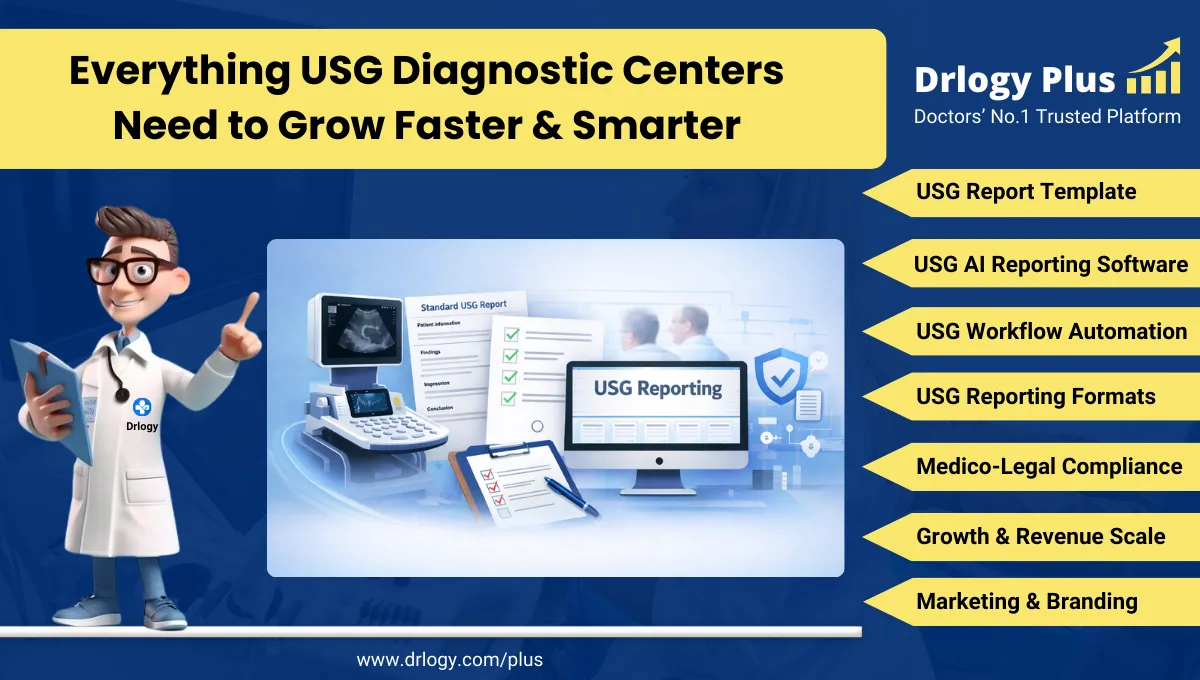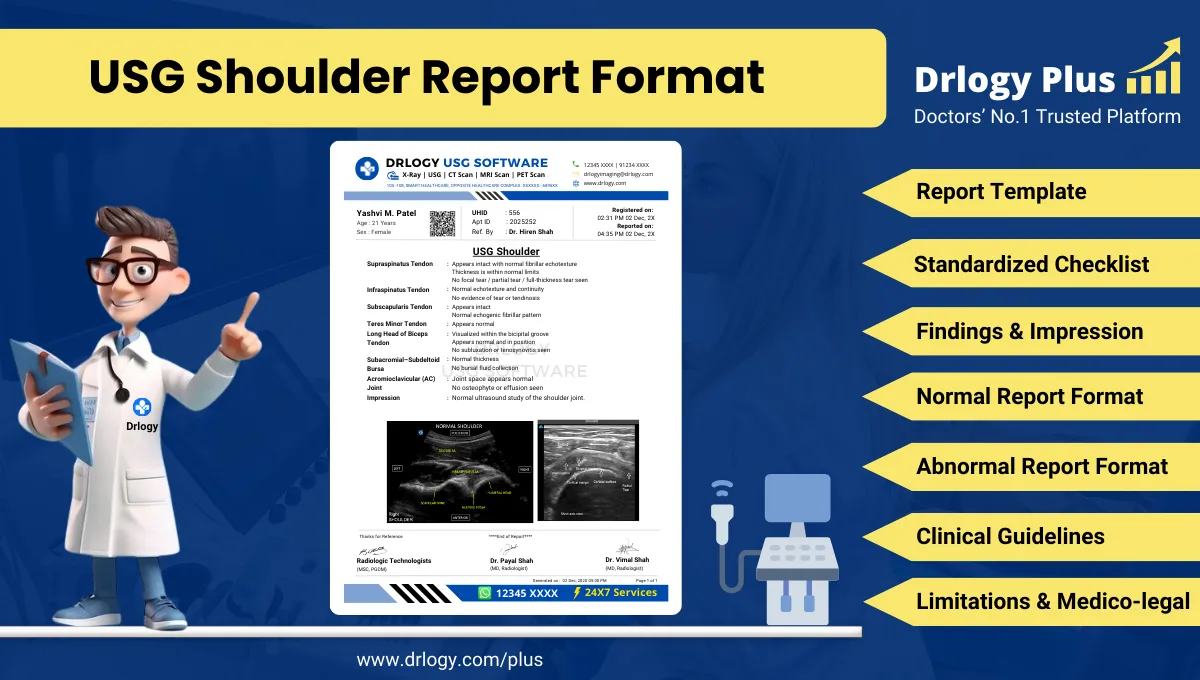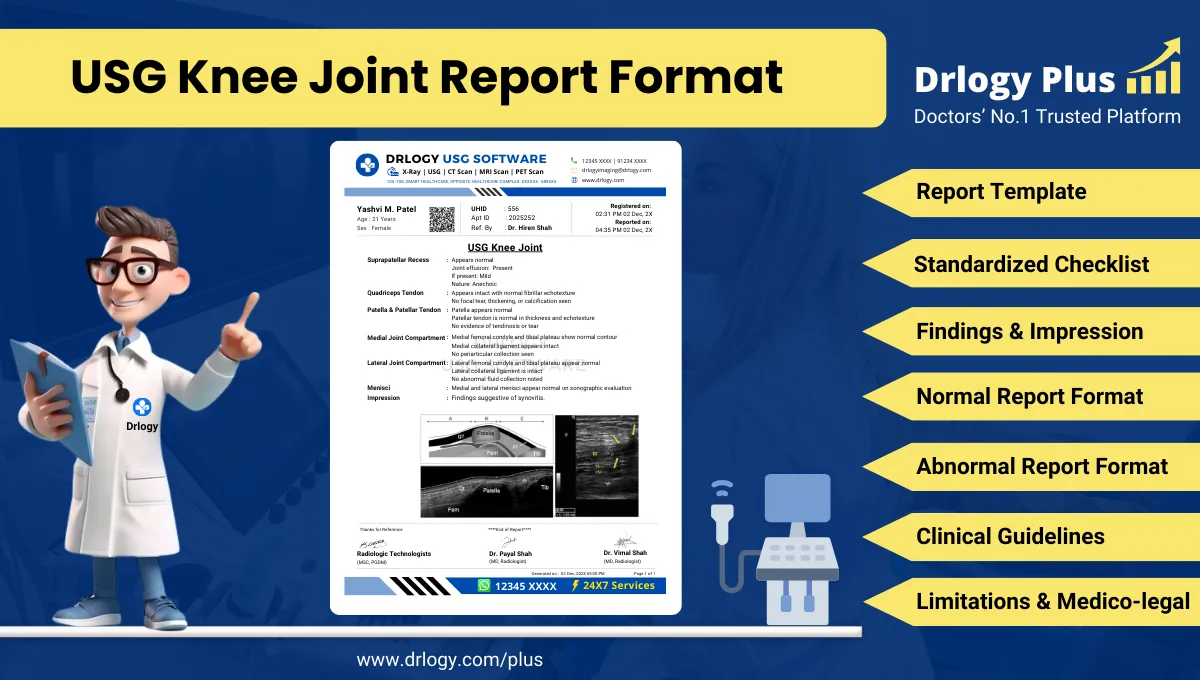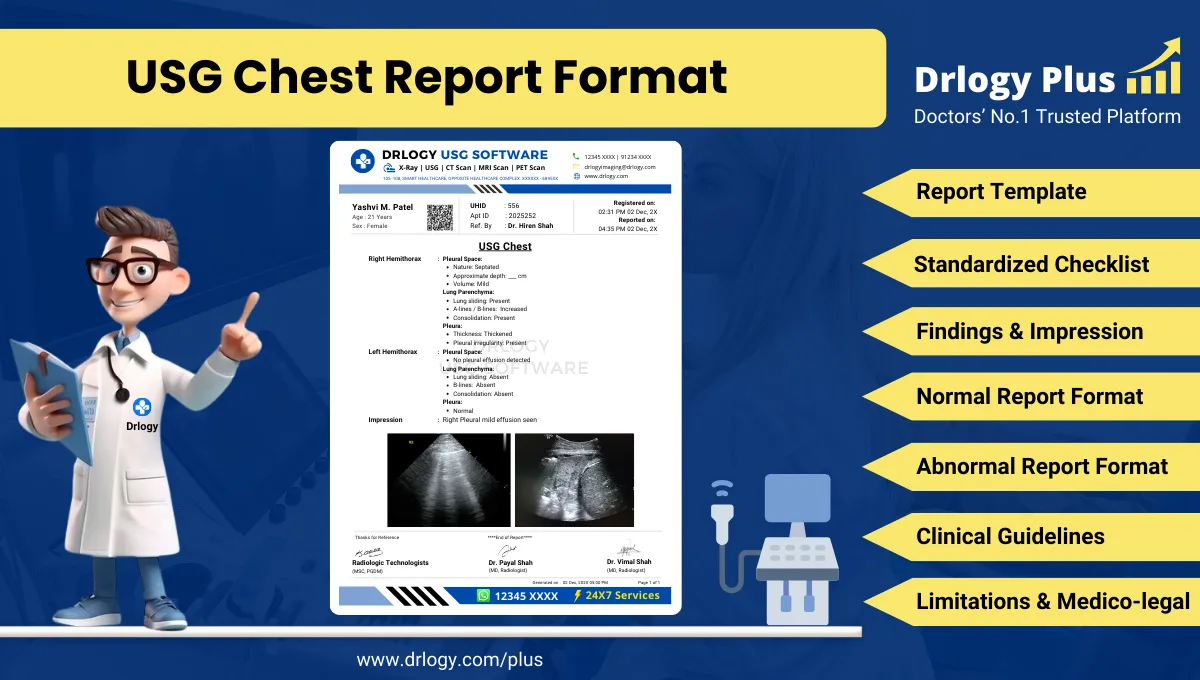

Drlogy
Healthcare organization
GAD-65 Test Report Format: 10 Key Clinical Guidelines & Example
In medical laboratories, GAD-65 test reports play a pivotal in diagnosing autoimmune disorders. The standardized format of these reports ensures clear communication between healthcare providers and patients.
This introductory context provides essential information for medical professionals, paving the way for detailed insights into disease diagnosis and treatment monitoring through the comprehensive analysis of GAD-65 antibodies.
Recommended
10 Key GAD-65 Test Report Format Clinical Guidelines
Below are the 10 key clinical guidelines for formatting a GAD-65 Test report in your pathology laboratory.
1. Patient Information:
- Comprehensive details: Capture patient's name, age, gender, contact information, and address.
- Accuracy assurance: Ensure meticulous recording to prevent errors in result attribution.
- Personalized care: Facilitate tailored healthcare by providing a holistic patient profile.
- Emergency contact: Include emergency contact details for urgent medical communication.
- Relevance: Ensure the patient's information aligns with the testing requisition.
2. Reference Doctor Information:
- Essential contact: Include reference doctor's name, contact number, and official address.
- Letterhead integration: Enhance professionalism by incorporating the reference doctor's letterhead.
- Credibility boost: Improve the report's credibility by featuring the reference doctor's credentials.
- Efficient communication: Facilitate seamless communication between the lab and reference doctor.
- Compliance: Ensure adherence to the reference doctor's preferred communication format.
3. Specimen Information:
- Clear labeling: Specify specimen details such as name, volume, and collection date.
- Traceability: Minimize the risk of sample mix-ups by ensuring properentification.
- Accurate recording: Record specimen information with precision and consistency.
- Compliance: Adhere to standardized labeling protocols for specimenentification.
- Regulatory requirements: Ensure compliance with specimen handling guidelines.
4. Test Name Heading, Test Methodology:
- Identification: Clearly label the report with the test name for easyentification.
- Methodology transparency: Outline the specific methodology employed for the GAD-65 test.
- Understanding promotion: Provide a brief description of the test process for better comprehension.
- Consistency: Maintain uniformity in test name presentation across all reports.
- Compliance: Ensure alignment with industry standards for test naming conventions.
5. Test Result:
- Clarity and precision: Present the GAD-65 test result in a clear and concise manner.
- Non-ambiguity: Avoid vagueuage or ambiguous terms in result reporting.
- Decision support: Enable quick decision-making for healthcare professionals based on results.
- Consistent formatting: Maintain a standardized format for result presentation.
- Clinical relevance: Emphasize the clinical significance of the reported result.
6. Normal Value Reference:
- Benchmarking: Include established normal value references for comparison.
- Result interpretation: Aid in the interpretation of results by providing a baseline reference.
- Reporting consistency: Ensure consistency in presenting normal values across reports.
- Standardization: Follow established guidelines for determining normal value ranges.
- Clinical significance: Highlight the clinical implications of results falling outside normal ranges.
7. Interpretation & Instrumentation:
- Result context: Provide a brief interpretation of the GAD-65 test results.
- Instrument transparency: Highlight the specific instrumentation used for the test.
- Decision support: Assist healthcare providers in deriving actionable insights from the results.
- Standardized reporting: Maintain consistency in the format of result interpretation across reports.
- Clinical correlation: Encourage healthcare professionals to correlate results with clinical findings.
8. Signature and Date:
- Authenticity confirmation: Feature a valid signature and date for report authenticity.
- Timeliness assurance: Confirm the report's timeliness and relevance by including the date.
- Compliance: Adhere to regulatory requirements mandating a signature for official documentation.
- Accountability: Assign responsibility through the inclusion of a clear signature.
- Audit trail: Facilitate traceability and accountability through a dated signature.
9. QR Code Authenticity and Barcode:
- Digital verification: Integrate a QR code for easy digital verification of report authenticity.
- Efficient tracking: Employ barcodes for efficient tracking and record-keeping.
- Technological enhancement: Embrace technology to enhance data security and accessibility.
- Quality assurance: Use QR codes and barcodes as additional quality control measures.
- Information accessibility: Facilitate quick and accurate retrieval of patient information through codes.
10. Diagnostic Laboratory Details:
- Accreditation information: Include details about the diagnostic laboratory's accreditation and certifications.
- Trust enhancement: Enhance trust by transparently sharing the laboratory's credentials with patients and healthcare providers.
- Compliance: Ensure adherence to regulatory requirements related to the display of laboratory details.
- Professionalism: Uphold a professional image by including relevant information about the diagnostic facility.
- Accountability: Provide information that supports the accountability of the laboratory for reported results.
Also Check
Drlogy Plus For Complete Digital Solutions for Doctors, Clinics, Hospitals & Labs to Enhance Patient Experience
GAD-65 Test Positive Report Format Sample
GAD-65 Test Negative Report Format Sample

GAD-65 Test Report Format
Here is a GAD-65 test report PDF format, highlighting its significance in the pathology laboratory.
Drlogy Pathology lab software plays a pivotal in ensuring a GAD-65 Test Report Format. Additionally, Pathology lab software automates many aspects of the testing process, from sample handling to data analysis. Drlogy Pathology Software provides healthcare providers with real-time access to GAD-65 test results, enabling timely decision-making and faster patient care.
Referred
Conclusion
- In conclusion, the meticulous adherence to the clinical guidelines for the GAD-65 test report format is paramount for delivering accurate and reliable diagnostic information.
- This structured approach ensures precise communication between medical professionals. Embracing these guidelines promotes trust, transparency, and effective healthcare management.
- Drlogy Plus For Complete Digital Solutions for Doctors, Clinics, Hospitals & Labs to Enhance Patient Experience.
Reference
- Glutamate decarboxylase - Wikipedia [1].
- GAD65 autoantibodies and its as biomarker of Type 1 ... - NIH [2].
- GAD-65 Test - Drlogy [3].





